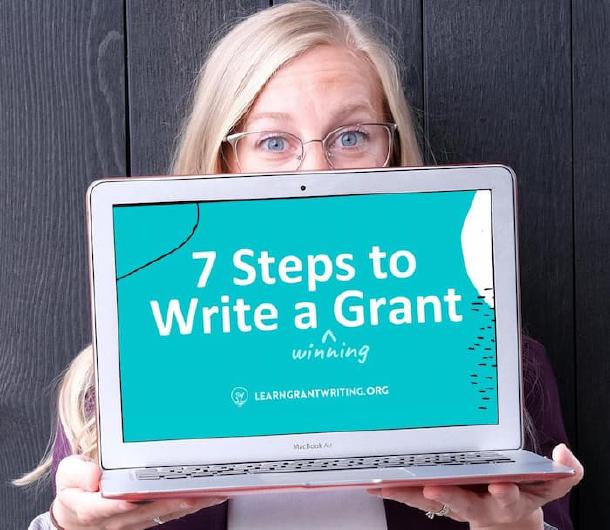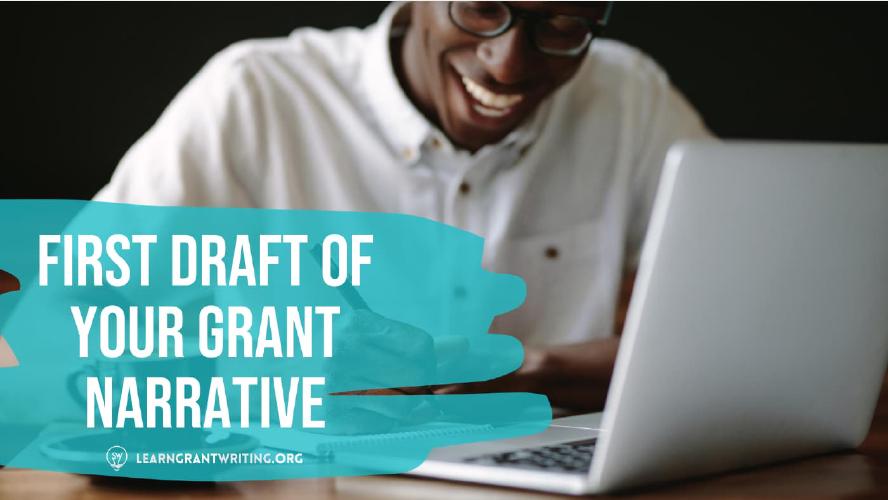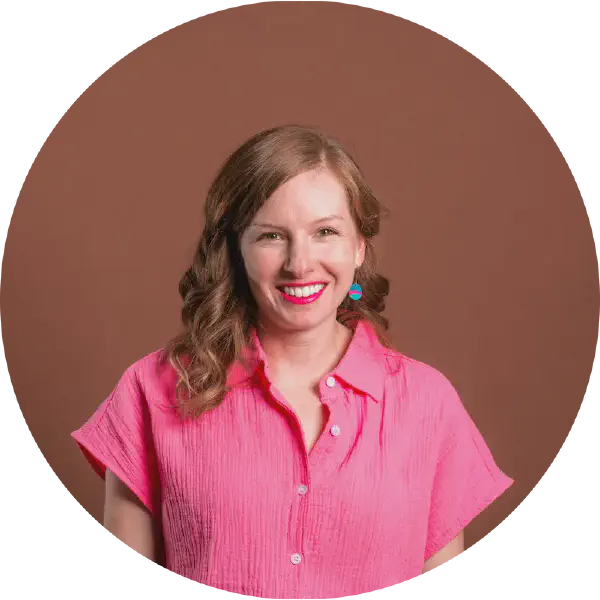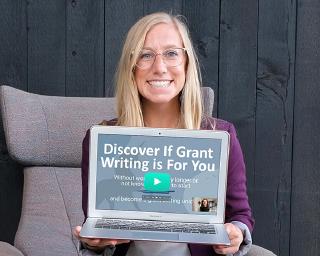It seems like the internet is filled with general grant writing tips that aren’t too useful. We don’t want to add to the noise at all, but these tips are genuine rules to live by when grant writing. Why? It makes the writing process faster and helps your grant reviewer find the information they need.
The tips below assume you have already set up a narrative ‘skeleton’ or template for filling in your responses. If you haven’t, get access to our free grant writing class and learn how to prep your narrative. Once you have that in place and are ready to start writing, here are tips and tricks to consider:
Tips for Writing Grant Narrative
Write fast and furiously!
It can be so tempting to go look up facts or information, but in your first draft try to not leave the word document. While you are typing, just make notes of sections you want to add facts or information and come back to it later. Use bullet points to list ideas. Ideally turn off your internet so you can’t be tempted by the distraction of looking up information!
If you find yourself going around and around on a single sentence, just skip it, even if it’s incomplete and move on. The more you force yourself to do this, the faster you will write. Before you know it, you will have a complete first draft narrative!
Discover Grant Writing as a Career
If you’re interested in becoming a grant writing consultant, check out this free training on how you can pull off a meaningful career change.
Access Free Class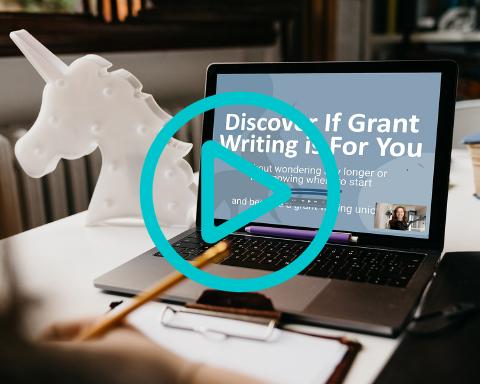
Target 20%+ more words in your first draft
Target 20%+ more words in your first draft than you actually need. When you start editing, you will slash content from the first draft to be as concise and clear as possible. To prevent you from having to go look for more content, fill your first draft with plenty of information.
Use the wording from the narrative question
In your response, use the wording from the narrative question. For instance, a common question in narratives would say something like this: “Clearly state the specific technical problem or opportunity addressed by the project and its importance.”
To help you make sure you are responding fully, start your narrative with, “The specific technical problem being addressed by the project is …”. After finishing that description, write, “The importance of the problem is…” Sometimes I’ll even bold and italicize those sections so it’s easy for the reviewer to see where I responded to each section of the prompt.
Even if you choose to delete the formatting later, it helps you visually make sure you responded to each question in the narrative guidelines.
Start with end of application
Start with the end of the application. The first part of an application is almost always worth the least amount of points and the most tempting to waste precious writing time on. If you start from the bottom and work your way to the front, you get into the most complex parts of the application (i.e. work plan or benefits section). By the time you make it to the summary or project background section, your writing is well tuned, and you can crank it out effortlessly.
Write project team section early
Write your project team section early on. As we talk about in the Project Development course, one of the best things you can do early on is get resumes from your team. Getting resumes can be like pulling teeth. Get them as fast as you can and then it provides instant content for writing the project team section of your narrative. Almost every application – even just a two-page letter of inquiry – requires knowing who the people behind the project are and their relevant experience and qualifications.
Don’t go overboard on abbreviations
Don’t go overboard on abbreviations. If you aren’t using the abbreviation later in the narrative, don’t abbreviate it. If you don’t use the abbreviation often and it’s spread throughout the narrative, consider just writing out the full name that the abbreviation stands for. Your grant reviewer won’t remember the abbreviations and shouldn’t have to go back in the narrative to hunt down its meaning.
Calculate how long each response should be compared to its point value
Calculate how long each response should be compared to its point value. There’s no sense in using half of your narrative on a section that’s only worth 10% of the total grant scoring. Divide the total points for scoring by the number of narrative pages allowed and multiple that figure by the percentage assigned to each section.
For example, if the grant is scored against a 100-point rubric and you can have 10 narrative pages and the work plan section is worth 40%, you know that section should take about four pages (i.e. 100 points/10 pages=0.1 pages x 40%= 4 pages).
Better video instruction on this is described in our Grant Writing Training.
Key Lessons for Draft Of Grant Narrative
- Write fast and furiously; don’t leave the narrative to chase down information!
- Target 20%+ more words in your first draft than you need.
- In your response, use the wording from the narrative question.
- Start with the end of the application.
- Get resumes from your team ASAP to write the project team section.
- Don’t go overboard on abbreviations.
- Calculate how long each response should be compared to its point value.
Remember, this process is much easier if you have a narrative 'skeleton'. You can download a free mini course on how to prep your narrative here.
For more tips and tricks on grant funding and writing a proposal, be sure to check out our FREE Grant Writing Class! You can also follow us on Instagram for updates and course information.
Free Grant Writing Class
Learn the 7-steps to write a winning grant application and amplify the impact you have on your community.
Access Free Class